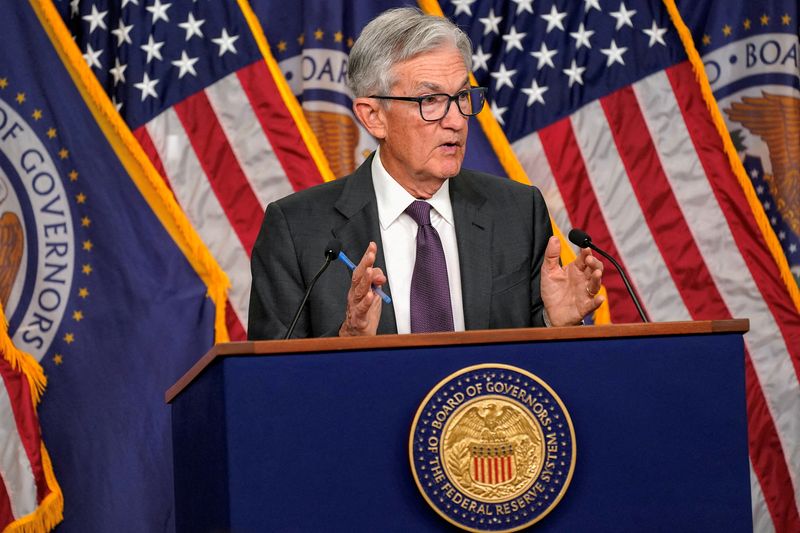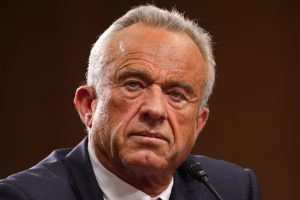
By Howard Schneider
WASHINGTON (Reuters) -President Donald Trump’s new tariffs are “larger than expected,” and the economic fallout including higher inflation and slower growth likely will be as well, Federal Reserve Chair Jerome Powell said on Friday, while cautioning it was still too soon to know what the right response from the central bank ought to be.
“We face a highly uncertain outlook with elevated risks of both higher unemployment and higher inflation,” undermining both of the Fed’s mandates of 2% inflation and maximum employment, Powell told a business journalists’ conference in Arlington, Virginia, in remarks that pointed to difficult decisions ahead for the U.S. central bank and did nothing to staunch a global bloodletting in stock markets.
Powell spoke as equity markets from Tokyo to London to New York continued a swoon that has wiped some 10% off major U.S. stock indexes since Trump announced a raft of new tariffs on trading partners around the world on Wednesday.
Investors had looked to Powell’s speech for reassurance that perhaps the Fed was poised to take supportive actions as it has in previous moments of extreme market duress, and Trump himself took to his social media platform to say now would be the “perfect time” for the Fed to cut interest rates.
But Powell did not address the selloff directly, instead acknowledging that the Fed faced the same uncertainty engulfing investors and company executives.
The S&P 500 Index was down another nearly 6%, with the Dow Jones Industrial Average 5.5% lower and the Nasdaq off 5%, ending a two-day decline that is the worst since the onset of the coronavirus pandemic in March 2020.
“Powell’s comments support our view that the Fed is not poised to rush in and cut interest rates anytime soon, despite President Trump’s call right ahead of Chair Powell’s comments to do so,” Nationwide Chief Economist Kathy Bostjancic said. “As such, we maintain our view the Fed waits until (the fourth quarter) to cut interest rates as the acceleration in inflation in the coming months makes them hesitant to lower rates to support the slowing economy.”
Powell said the Fed has time to wait for more data to decide how monetary policy should respond, but the central bank’s focus will be on ensuring that inflation expectations remain anchored, particularly if Trump’s import taxes touch off a more persistent jump in price pressures.
“While tariffs are highly likely to generate at least a temporary rise in inflation, it is also possible that the effects could be more persistent,” Powell said.
